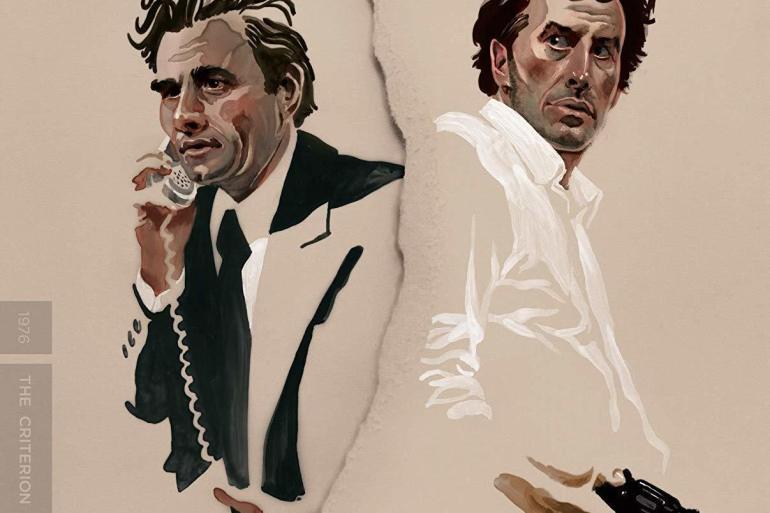Craving Criterion is a new regular series where one of our contributors reviews and discusses the Criterion Channel’s Movie of the Week.
Great news for all those who mourned FilmStruck after the streaming service was shuttered in late 2018—the Criterion Collection will launch their own streaming service called The Criterion Channel on April 8th. In the meantime, the site will feature a Movie of the Week from the collection for those who sign up as a charter subscriber. The first Movie of the Week was a recent addition to the Collection, Mikey and Nicky, Elaine May’s 1976 film about a fraught lifelong friendship between two small-time gangsters.
Nicky (John Cassavetes) is in trouble. Holed up at a hotel to hide from his boss, whom he believes has put a hit out on him, frantically calls his childhood best friend, Mikey (Peter Falk), to help him escape. As Nicky gives Mikey directions on where to find him, it becomes obvious that this is not the first time he’s needed Mikey’s help to get him out of a tight spot, but he comes anyway, seemingly ready to help his frantic friend, all the while informing on his location to the hitman tasked with carrying out the contract on Nicky.
The energy between frequent collaborators Peter Falk and John Cassavetes and their ability to effortlessly play off one another in this somewhat improvisational film makes it so special to watch. Falk and Cassavetes build characters who are intrinsically tied through their shared personal history but have a hard time articulating their importance to each other. Falk, as the responsible, straight-laced Mikey, tenderly holds his panicked friend, force-feeds him medicine and coffee creamer to soothe his stomach, rubs his neck as he cries into his shoulder. It’s apparent that even though, he’s had to do this for Nicky before, be the person who says, “No one’s after you, no one’s here,” he isn’t unwilling to do it. Cassavetes, playing the frazzled and paranoid Nicky, rebuffs his friend’s attempts to comfort him, but all but breaks down when Micky tries to leave.
Elaine May is interested in portraying how effortless it is to betray someone when you feel hurt, and how the trappings of masculinity, namely the urge for dominance, be it economical, professional, or sexual, complicates the friendship between men. She gives her actors space to spiral out into these complex emotions, keeping her filming style pared back and natural. Her realism makes the feelings of betrayal and negligence all the more heartbreaking.

In a fight in the last third of the movie, Mikey accuses Nicky of using him to gain status and favor in their organization and then abandoning him. He is always there when Nicky calls in the middle of the night needing to be helped out of a jam, but if he picks up the phone just to chat, Nicky is nowhere to be found. It’s a vulnerable confession of feelings of inadequacy, highlighting just how embarrassing and needy it can be to ask your friend to pay attention to you. Nicky plays it off, promising to be a better friend, but the two resort to fighting in the street before Mikey storms off in search of the hitman who is supposed to take care of Nicky—friendship effectively over. Mikey realizes much too late that Nicky is the only person who understands him in a deep, personal way.
Elaine May’s electric Mikey and Nicky is an exploration of how the trappings of masculinity colors friendship between men. The film’s heartbreaking emotional honesty is the result of a marriage of May’s improvisational, realistic filmmaking style and Falk and Cassavetes’ engrossing chemistry.
Mikey and Nicky is streaming on The Criterion Channel for those who sign up as charter subscribers now through Tuesday, February 5th.
To help us continue to create content, please consider supporting us on Patreon: https://www.patreon.com/filmera


